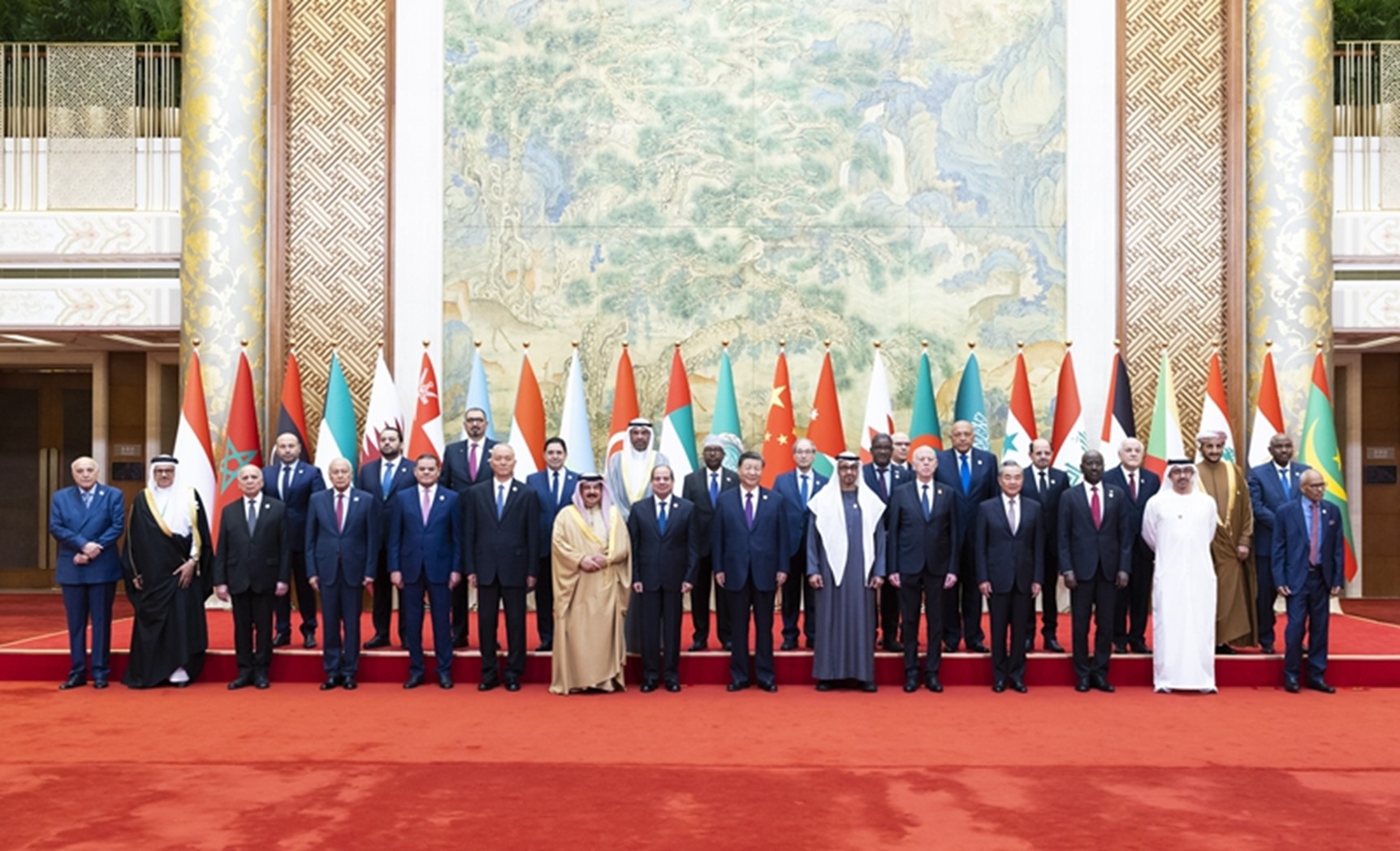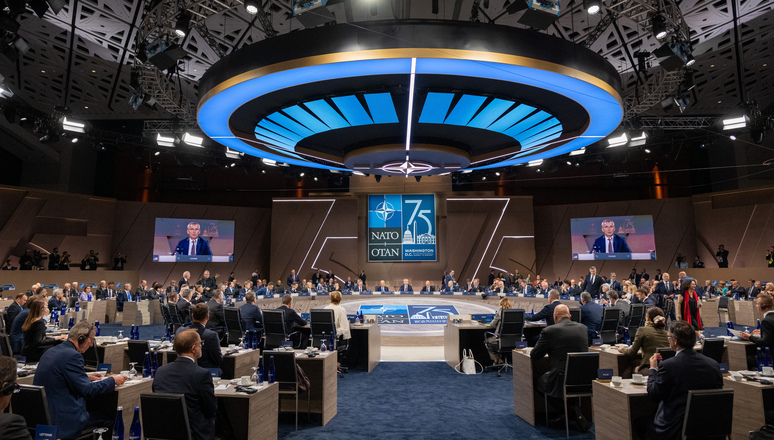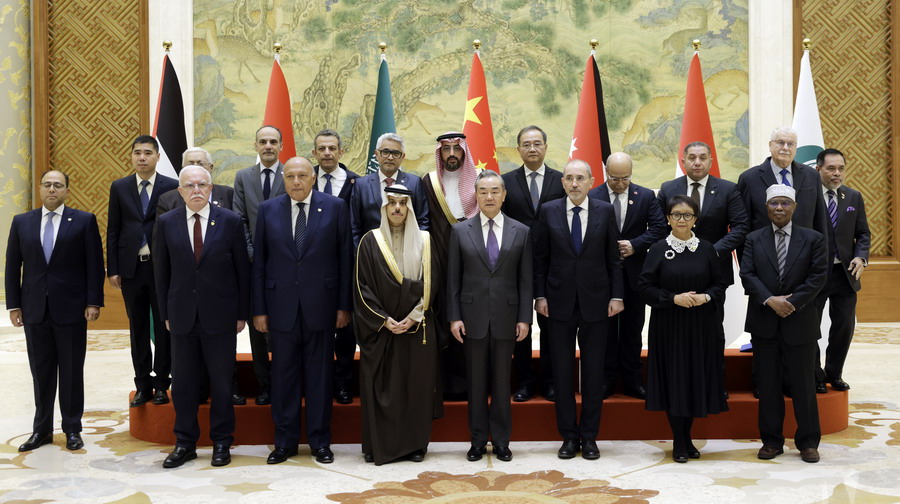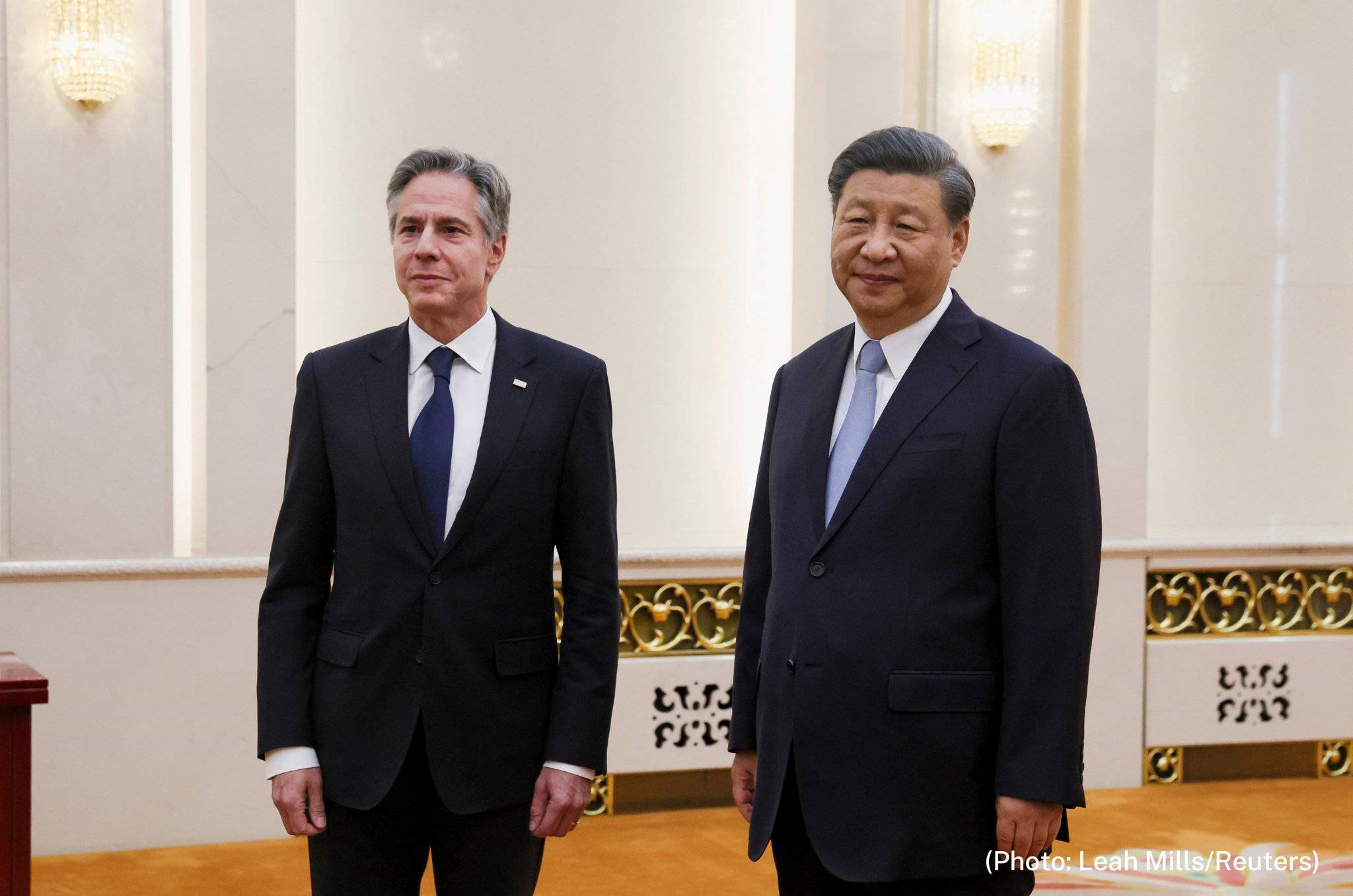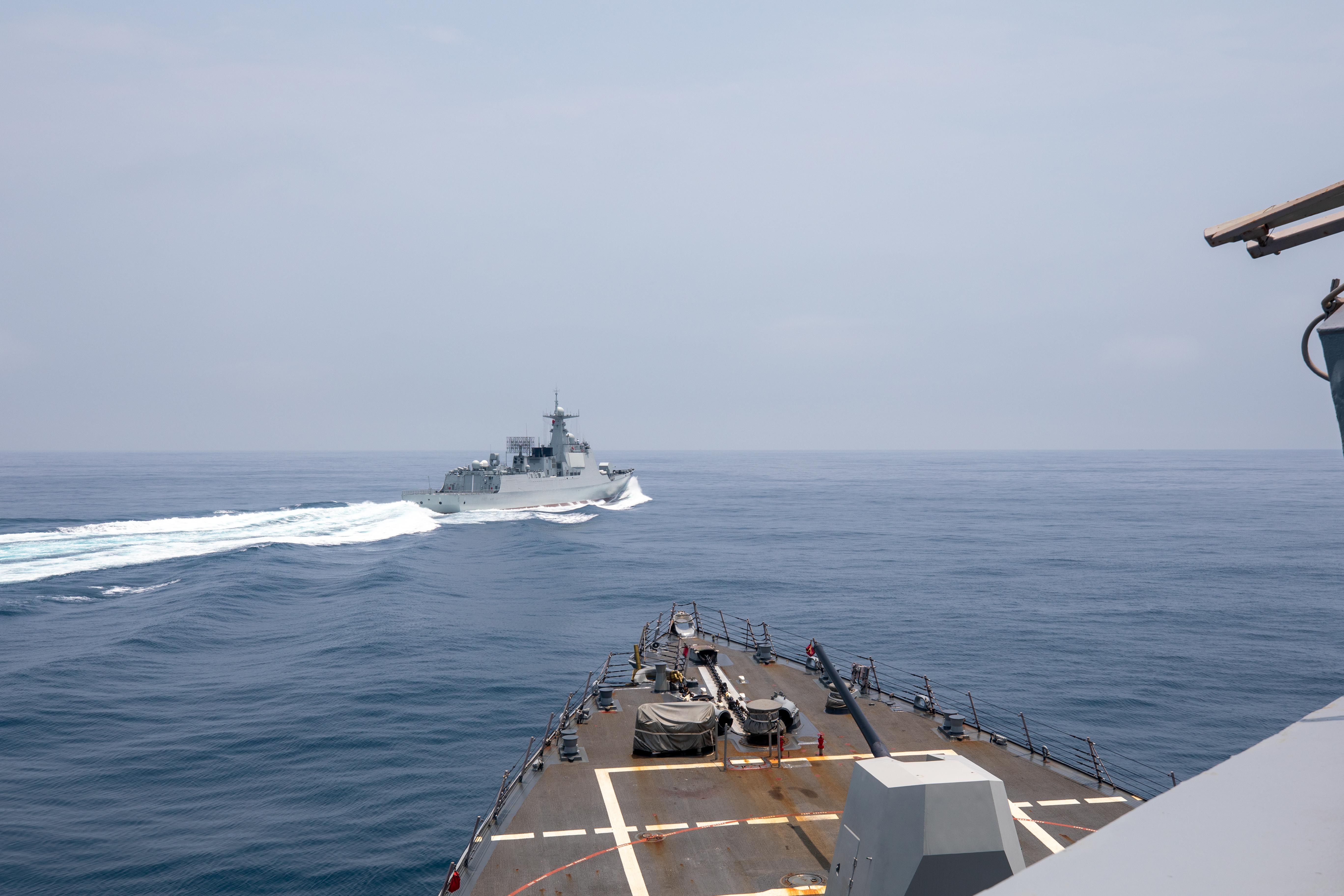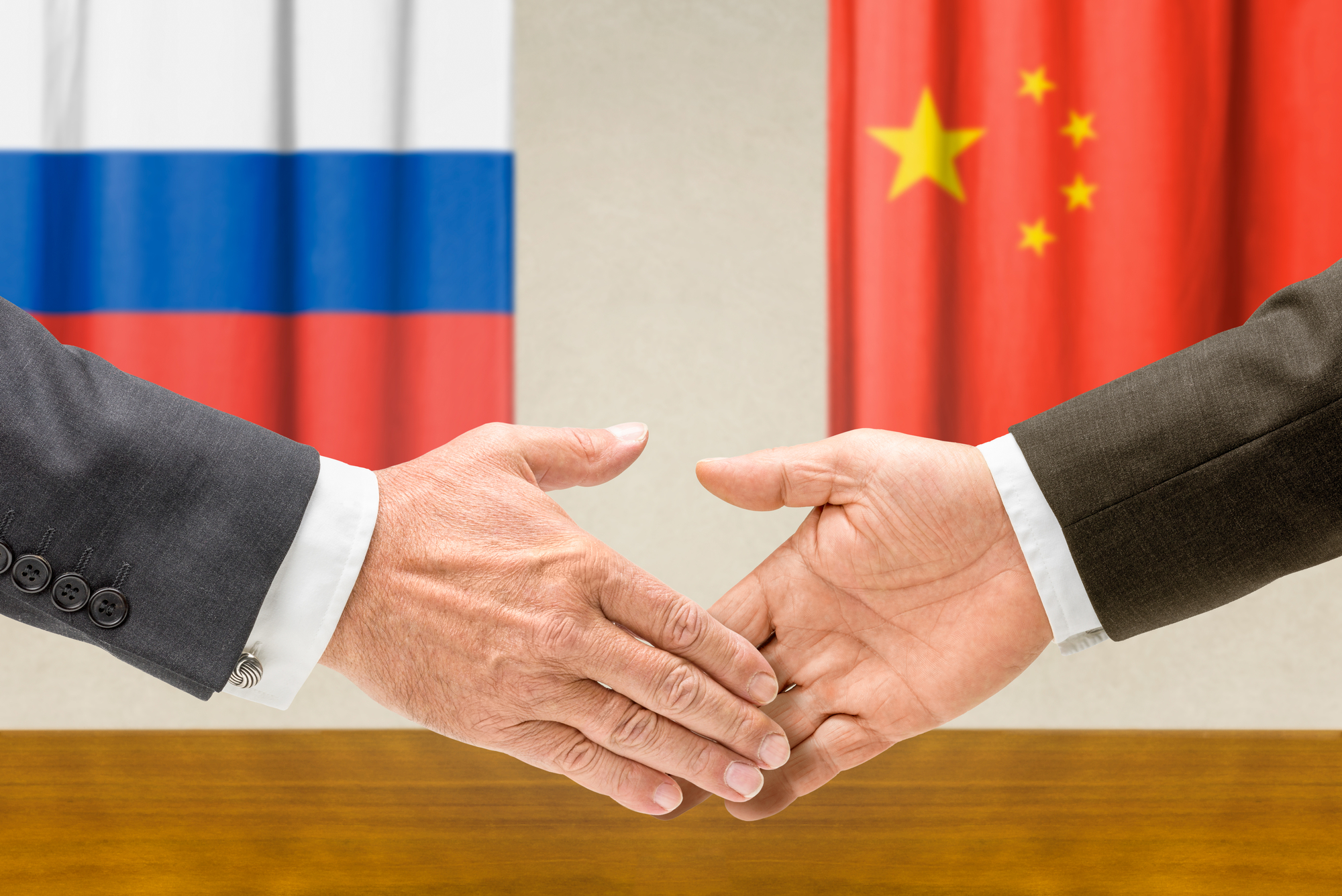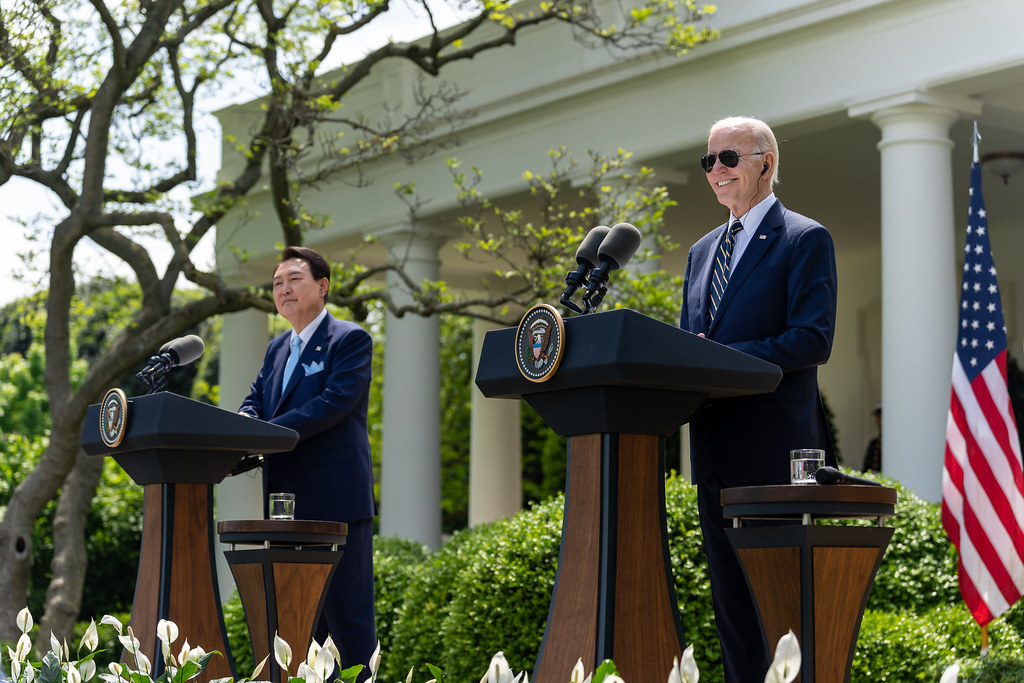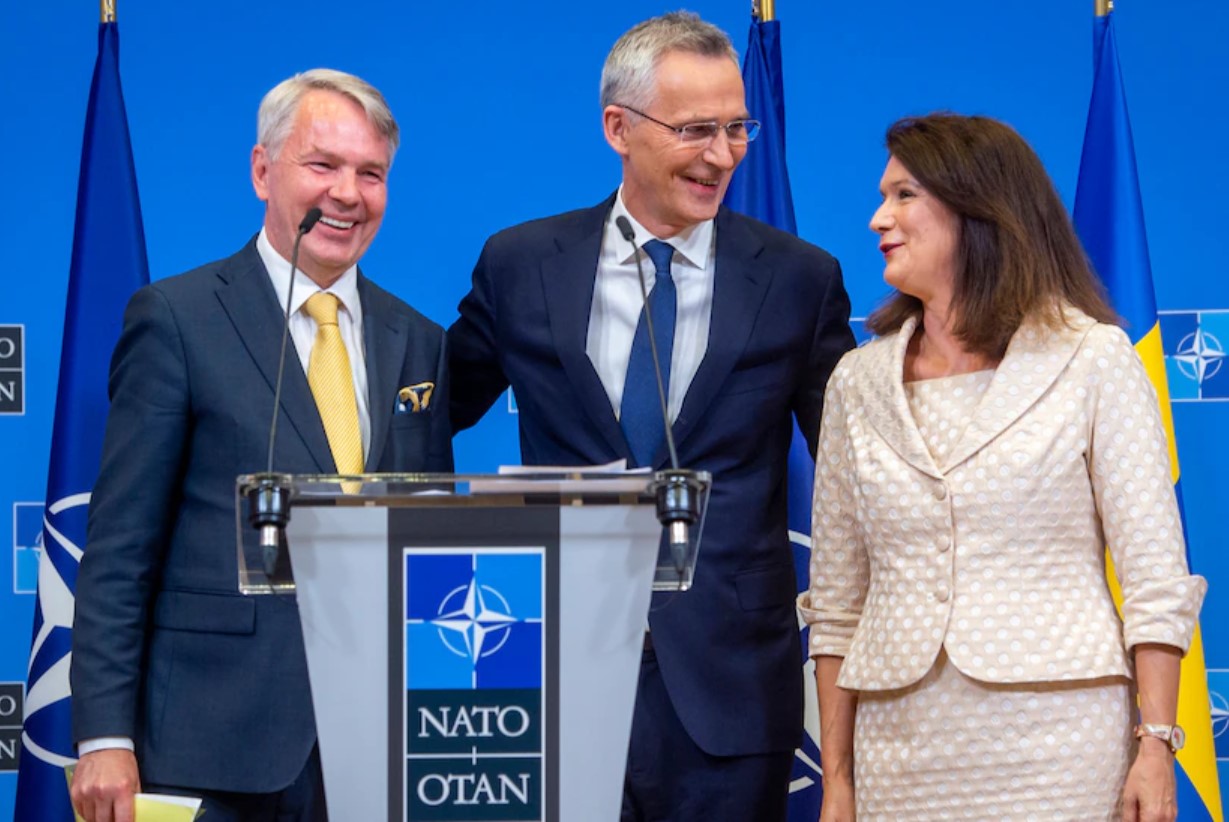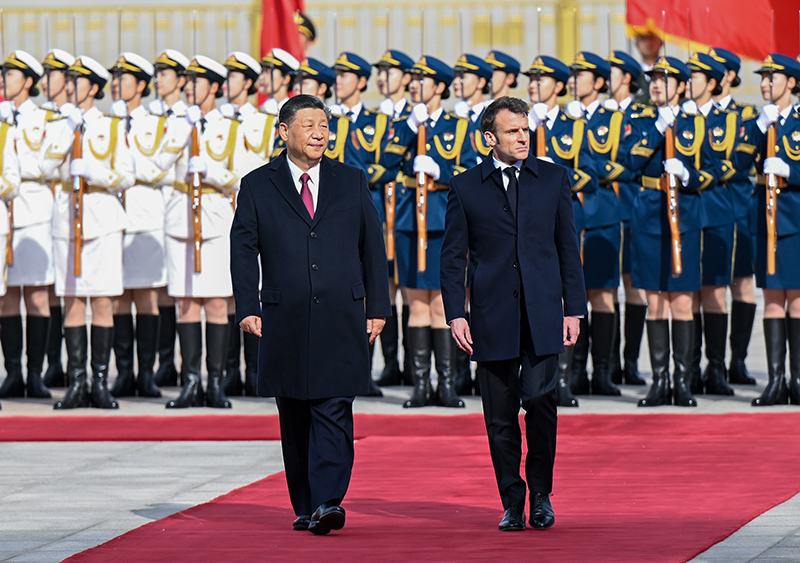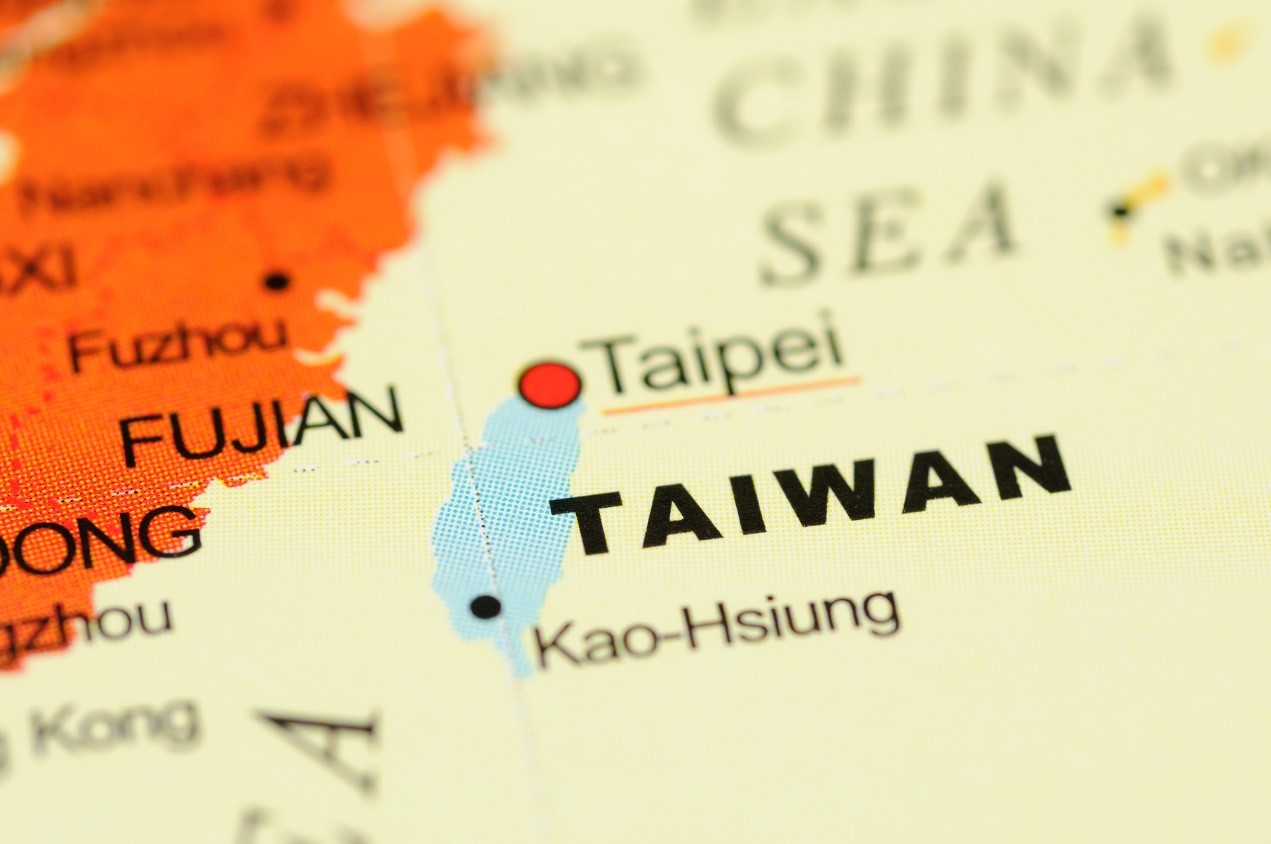So far, while China’s strategic moves in the Middle East have garnered public support and pose challenges to the U.S., the long-term impact of these maneuvers remains uncertain. The region’s complex dynamics and the still critical role of U.S. political and military power suggest that China’s influence may face significant limitations. Picture source: Gov.cn, May 30, 2024, Gov.cn, https://www.gov.cn/yaowen/liebiao/202405/content_6954536.htm.
Prospects & Perspectives No. 44
Is China’s Strategy in the Middle East Succeeding?
By Gedaliah Afterman & Dominika Urhová
Over the past decade, China has been expanding its presence in the Middle East. What started as a balancing act, primarily focused on economic cooperation and working with countries across regional divides, has become a more proactive approach, with Beijing seeking to also become a political and diplomatic player in the region.
China began making significant inroads into the Middle East following the Arab Spring in 2011 and the U.S. pivot to Asia under the Obama administration. Washington’s decision to shift its focus toward the Indo-Pacific and away from the Middle East created a vacuum that could be filled by other actors, further heightening Beijing’s interest in the region. Regional players, for their part, have grown increasingly disillusioned with Washington’s policies, including the U.S. invasion of Iraq, Trump’s withdrawal from the Joint Comprehensive Plan of Action (JCPOA) agreement, the Biden administration’s hurried exit from Afghanistan and its strained relations with Saudi Arabia. The growing perception of a U.S. retreat and regional actors’ desire to diversify their alliances and partnerships have resulted in China being increasingly seen as a viable alternative.
An Economic Power
Beijing’s economic activities in the region expanded significantly, particularly after the introduction of Xi Jinping’s Belt and Road Initiative in 2013, with China becoming the largest trading partner and source of investment in the Middle East in 2010 and 2016, respectively. Digital Silk Road projects currently represent the majority of Chinese projects in the region.
Though at first focused on energy, trade, and investment, China’s involvement now ranges across a broader spectrum, including infrastructure and technology. With the superpower competition between China and the U.S. intensifying, and China’s economic clout growing, Beijing’s ties with countries in the Middle East have become increasingly strategic for both sides, and technology in particular has gradually become key to China's engagement with the region.
The policy shift has been evident particularly among the Gulf Cooperation Council countries, for whom expanding their relationships with China represents a strategic decision. With those countries’ growing ambition to diversify their economies away from oil and to become global technological and innovation hubs, Chinese investment, along with its aspirations for technological autonomy, present an attractive opportunity. This has been demonstrated by the surge in investment throughout the past two decades. While China’s investment in the Gulf countries stood at around US$10 billion in 2000, it reached more than US$230 billion in 2021.
A similar pattern can be observed in China’s ties with Israel. Sino-Israeli trade reached US$21 billion in 2022, with Chinese companies engaging in around 500 investment deals in Israel over the past decade. For Beijing, Israel’s primary appeal lies in its high-tech industry and its technology sector. However, the close ties between Israel and the United States, coupled with Washington’s increasing concerns over China's access to Israel’s strategic and sensitive sectors, have complicated the relationship.
China’s Response to October 7 and the Gaza war
As China’s economic influence in the region grew, and following ongoing signs of waning U.S. influence, Beijing moved to position itself as a mediator and an alternative to the United States. Its successful mediation of Saudi-Iranian rapprochement in 2023, alongside the growing frustration of regional powers with the Biden administration’s handling of the Gaza conflict, enabled Beijing to mediate its way into the region’s security architecture. China’s effort to pave its own path, one in contrast to the United States, has been particularly evident since the outbreak of the Gaza War in October 2023.
Beijing’s reaction to the October 7 massacre by Hamas moved from notably passive, failing to condemn Hamas’ actions and calling for both sides to refrain from further escalating the conflict, to gradually one-sided and marked by increasingly anti-American and anti-Israel rhetoric. Throughout the war, China’s traditional by symbolic support for the Palestinians has gradually moved to the forefront.
China’s calculated shift towards a more assertive and pro-Palestinian stance reflects its evolving priorities in the Middle East. This shift indicates that Israel does not rank highly in Beijing’s strategic calculations, and any damage to their relationship is considered manageable collateral in the broader regional and geopolitical game.
Nevertheless, China’s approach to the conflict should not necessarily be seen as being driven by its changing perception of Israel. Instead, it should be viewed through the lens of its competition with the U.S. and its ambition to become the voice of the Global South and the leader of the “coalition of the oppressed.”
Beijing’s Strategic Conflict Mediation
For Beijing, the Israeli-Palestinian conflict is about its standing in the region, its relations with Arab countries and Iran, and its strategic positioning vis-à-vis the United States. Throughout the Gaza war, China has leveraged the conflict to discredit American influence while bolstering its own. Another, less mentioned, goal for China has been to secure Arab and Muslim support for its stance on Taiwan and its policies in Xinjiang while countering Western — especially U.S. — criticism of Beijing’s human rights policies as hypocritical.
Unlike the United States and its allies, China views Palestinian unity with the inclusion of Hamas as essential for post-war Gaza governance talks. By holding talks with rival Palestinian factions in April and July 2024, China aimed to carve out a more concrete role for itself and shape the political reality on the ground, countering the declared positions of Israel and the U.S., which exclude Hamas as a legitimate part of the Palestinian political process.
By engaging in Palestinian reconciliation, China also aimed to replicate the success and prestige it garnered following the 2023 Saudi-Iran agreement. However, even with China’s apparent PR success, the future and the impact of the Beijing Declaration on the political reality on ground remain uncertain, and regional leaders still believe that only the U.S. can broker a solution to the Gaza conflict.
Though China’s political ambitions should not be underestimated, they do not imply that it seeks, nor has the capabilities, to replace the U.S. in the Middle East, at least for now. Instead, these efforts should be seen as part of a broader narrative war between the two superpowers and of China’s effort to assume a greater role in conflict mediation worldwide, within the framework of Xi’s Global Security Initiative (GSI).
Endgame in the Middle East
China’s engagement in the Middle East should be viewed as a blend of strategic calculus and opportunism. While China’s offerings and the potential benefits it seeks from its regional partners are undoubtedly strategic, the relationships are still evolving. Both China and its Middle Eastern counterparts are seeking to maximize their interactions, often with the United States as a backdrop to their calculations. This dynamic underscores the complexity of China’s role in the region, where long-term strategic goals are pursued alongside immediate opportunities, reflecting a careful balancing act that continues to unfold.
So far, while China’s strategic moves in the Middle East have garnered public support and pose challenges to the U.S., the long-term impact of these maneuvers remains uncertain. The region’s complex dynamics and the still critical role of U.S. political and military power suggest that China’s influence may face significant limitations. As geopolitical realities shift and the Middle East gains greater importance, the interplay between China’s ambitions and U.S. responses will be a defining factor in shaping the region’s future.
(Dr. Gedaliah Afterman, head of the Asia policy program, Abba Eban Institute for Diplomacy and Foreign Relations at Reichman University, Israel. Dominika Urhová, China Analyst, Association for International Affairs.)



